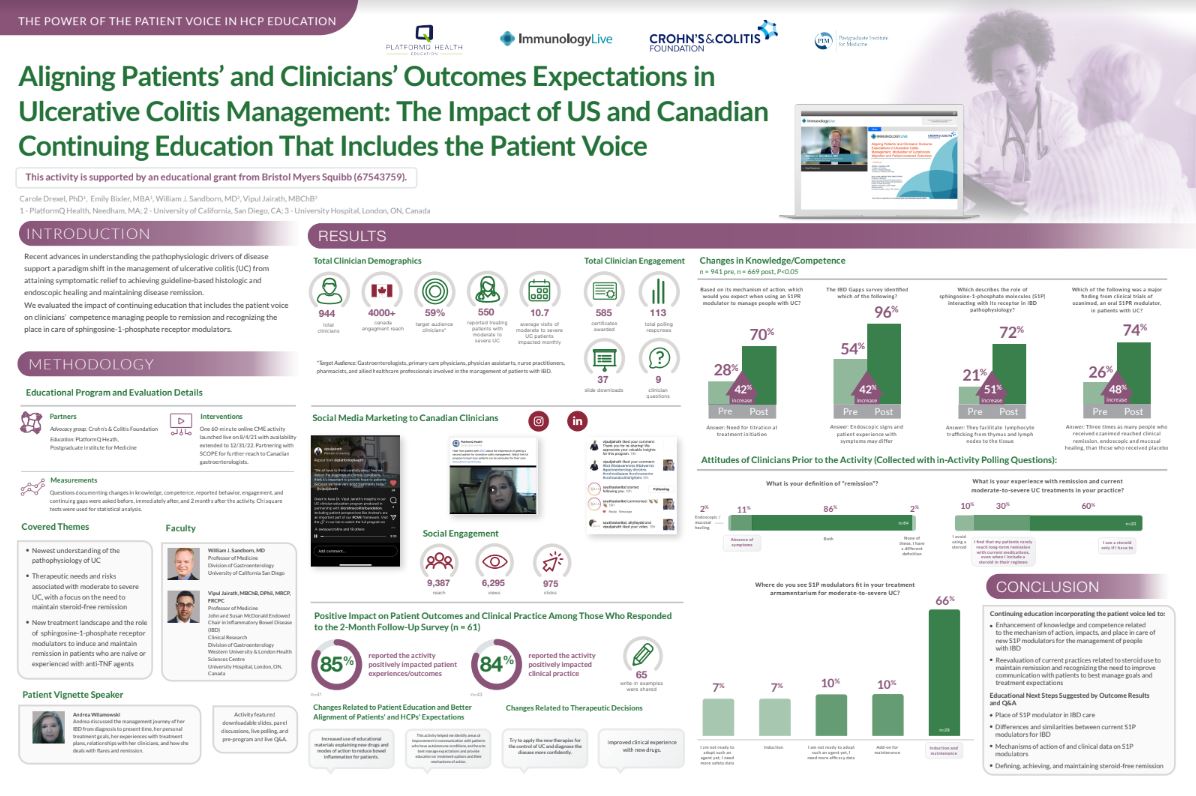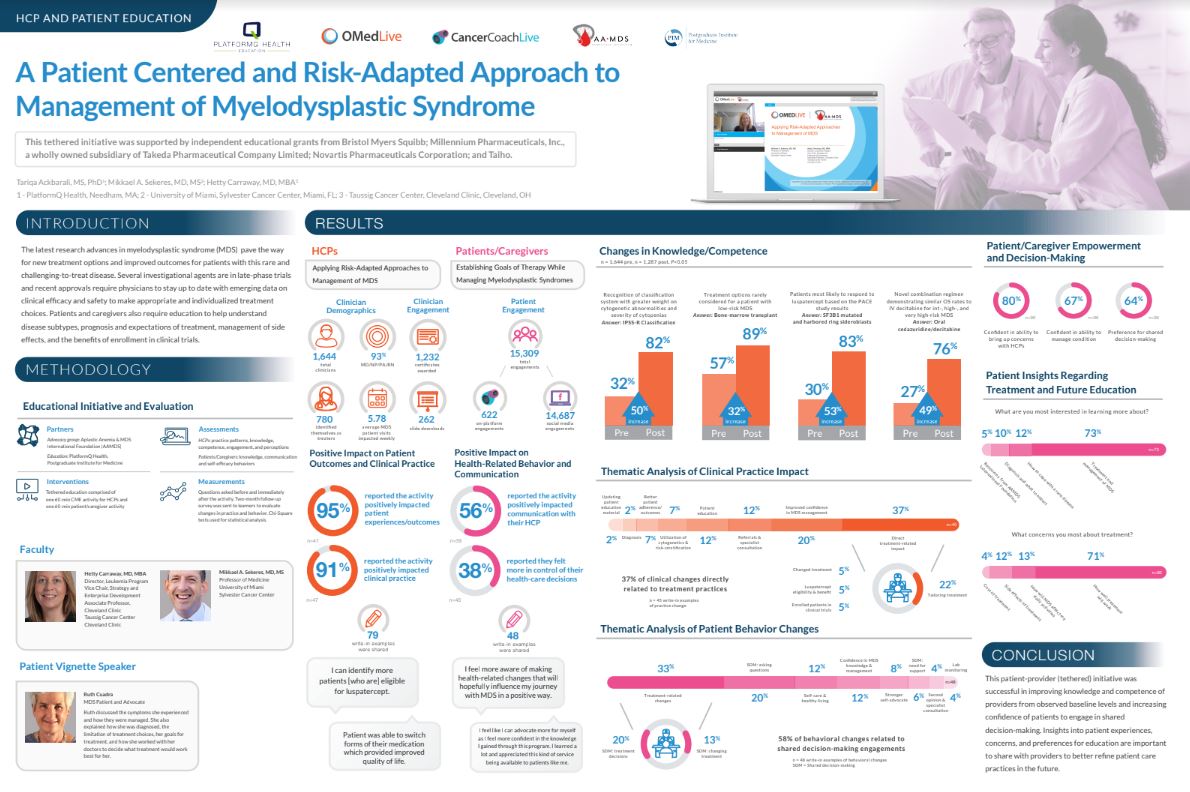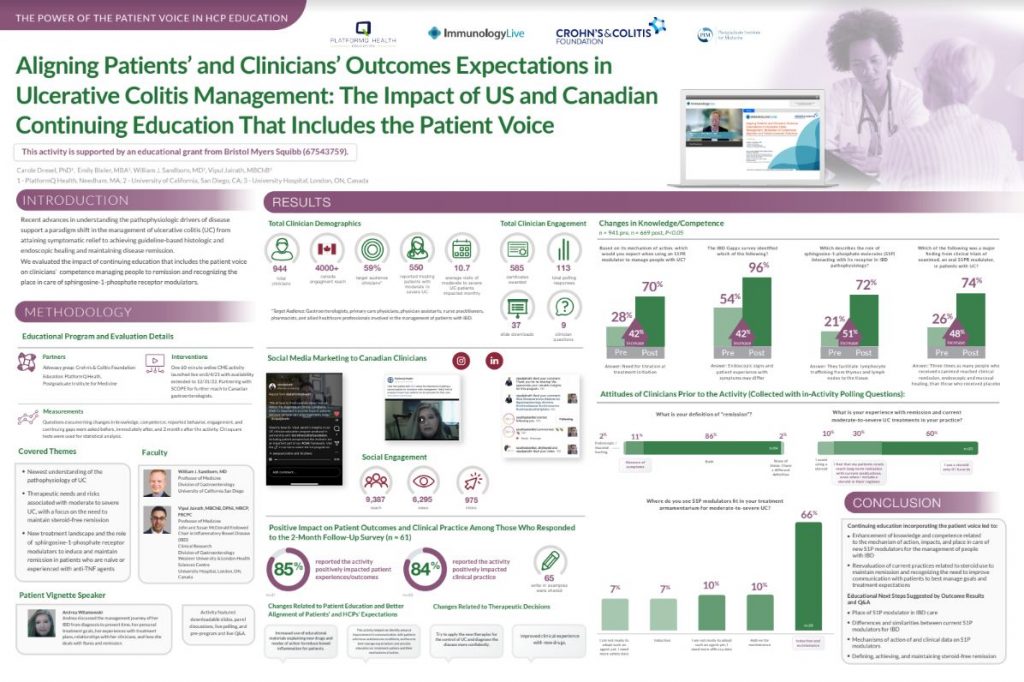PlatformQ Health was invited to present at Bristol Myers Squibb private poster day. The posters present outcomes from two educational initiatives that show positive improvements in patient experience and clinical practice.
CME Education Improves Clinical Practice for Treating Ulcerative Colitis
Recent changes in understanding the drivers of ulcerative colitis have changed how the disease is managed. This necessitated continuing education to help providers better understand how to treat patients in remission and what the role is for new therapies such as sphingosine-1-phosphate receptor modulators. The Crohn’s and Colitis Foundation joined PlatformQ Health in presenting a CME Program focused on aligning patients’ and clinicians’ outcome expectations. The 60-minute program helped providers to understand the new pathophysiology of ulcerative colitis, the needs and risks associated with moderate to severe disease, as well as when to introduce new therapies to patients. Led by key opinion leaders from the University of California, San Diego and University Hospital, the session made an impact, with 85% of learners reporting that the activity positively impacted patient experiences and outcomes and 84% reporting that the activity positively impacted their clinical practice.

Click here to download full poster.
Tethered Education for Treating MDS Benefits Patients and Providers
Research advances in myelodyspastic syndrome (MDS) have brought new treatments to the forefront. These promising developments have also led to challenges for health care providers to stay up to date on the most appropriate treatment option for each patient. To address this issue, the Aplastic Anemia & MDS International Foundation and PlatformQ Health partnered to develop a free tethered education course consisting of one 60-minute CME program for healthcare providers and one 60-minute patient/caregiver activity. Key opinion leaders from the Taussig Cancer Center at Cleveland Clinic and the Sylvester Cancer Center led the discussion, which also included a patient vignette speaker. The patient discussed how her symptoms were managed, limitations of treatment choices, her treatment goals, and how she worked with her doctors to make treatment decisions.
More than 1,644 healthcare providers joined the CME session, with 95% reporting that the activity positively impacted their patients and 91% reporting that the activity positively impacted clinical practice. Knowledge improvements were gauged through pre- and post-survey questions. Competence increased across a number of therapeutic topics, with more than a 50% increase in several categories between pre- and post-survey questions.
The patient/caregiver session was also successful, resulting in 15,309 total engagements, with 56 percent of learners reporting that the activity positively impacted communication with their healthcare provider.


